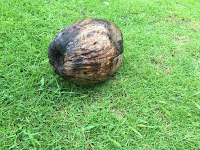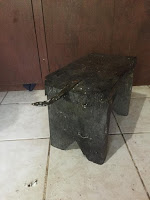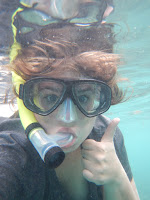How To Make Coconut Oil

A small how to guide on making coconut oil for beauty purposes Step 1: Gather 5 copra coconuts Step 2: Husk the coconuts Step 3: Open the coconuts Step 4: Grate the meat out of the coconuts – most people use electric graters but many still do it by hand Step 5: Make coconut milk – See this blog post Step 6: Filter coconut milk Step 7: Boil coconut milk Step 8: Once boiled add flowers for sent Step 9: Allow it to cool Step 10: Filter to separate solid and liquid Step 11: Enjoy

